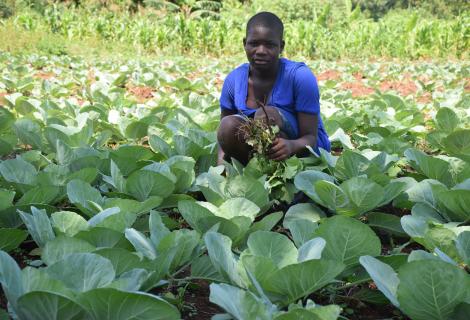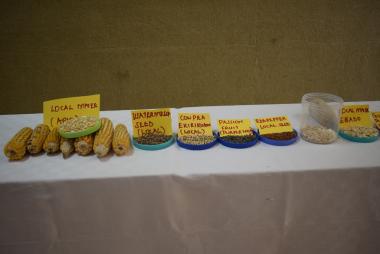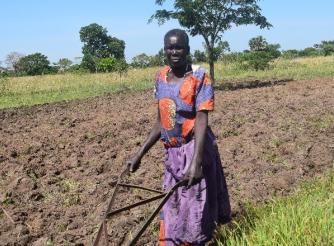ActionAid International to host regional resilience hubs in Uganda and Malawi.

On Wednesday 18th November 2020, ActionAid International virtually launched the Eastern and Southern African Resilience hubs in Uganda and Malawi (respectively). The hubs are regional platforms for improving and advancing Resilience programming in light of climate crisis and its effects on local communities. The purpose of the hubs is therefore to bolster technical programmatic resilience capacity, policy, and coordination at a regional level.
The memorable virtual event was attended by ActionAid staff across the federation led by the International Humanitarian Action & Resilience Team (IHART), partner organizations, and Small holder farmers.
AAIU is privileged to be host to the East African hub while Malawi will host the southern Africa hub although with a lot of collaboration and cooperation in between. These hubs will work to cover livelihood adaptation measures, reduction of impact of climate induced disaster through Disaster Risk Reduction, seed conservation, preservation, sharing and saving, water conservation, soil management and other climate resilient sustainable Agriculture measures.

The idea will be to cushion the most prone communities from climate vulnerabilities and risks to advance sustainable and resilient livelihoods of people.
During the launch event, AAIU mobilized small holder farmers from Katakwi, Kumi and Kapchorwa districts to hear stories of change and voices of triumph in a bid to accelerate community resilience in the face of Covid-19 and the current climate crisis.
The women small holder farmers told their stories of success on how their community managed seed system ( community seed banks) enabled them to access seeds for farming even when movement was heavily restricted during the pandemic induced country lockdown.
“Our traditional varieties have thrived the biotic and abiotic stresses. They are drought tolerant, pest and disease resistant. When the floods hit us in 2019 and all our gardens were destroyed, we still had our indigenous seeds to fall back on. Even when the locusts invaded us, our indigenous seeds were available to save us from the potential drought”. said Christine, Small Holder Farmer (Seed bank Manager), Katakwi District, Eastern Uganda.
